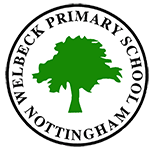Year 6
Children learn to:
Speak and listen for a wide range of purposes in different contexts
1. Speaking
- use a range of oral techniques to present persuasive arguments and engaging narratives
- participate in whole-class debate using the conventions and language of debate, including Standard English
- use the techniques of dialogic talk to explore ideas, topics or issues
2. Listening and Responding
- make notes when listening for a sustained period and discuss how note taking varies depending on context and purpose
- analyse and evaluate how speakers present points effectively through use of language and gesture
- listen for language variation in formal and informal contexts
- identify the ways spoken language varies according to differences in context and purpose of use
3. Group discussion and interaction
- consider examples of conflict and resolution, exploring language used
- understand and use a variety of ways to criticise constructively and respond to criticism
4. Drama
- improvise using a range of drama strategies and conventions to explore themes such as hopes, fears, desires
- consider the overall impact of a live or recorded performance, identifying dramatic ways of conveying characters’ ideas and building tension [creative entitlement
- devise a performance considering how to adapt the performance for a specific audience
Read a wide range of texts on screen and on paper
5. Word reading skills and strategies
- use knowledge of word derivations and word structure, eg affixes, acronyms and letter omission, to construct the meaning of words in context
6. Understanding and interpreting texts
- appraise a text quickly, deciding on its value/quality/usefulness
- understand underlying themes, causes and points of view
- understand how writers use different structures to create coherence and impact
- recognise rhetorical devices used to argue, persuade, mislead and sway the reader
7. Engaging with and responding to texts
- read extensively and discuss personal reading with others, including in reading groups
- sustain engagement with longer texts, using different techniques to make the text come alive
- compare how writers from different times and places present experiences and use language
Write a wide range of texts on paper and on screen
8. Creating and shaping texts
- set own challenges to extend achievement and experience in writing
- use different narrative techniques to engage and entertain the reader
- in non-narrative, establish, balance and maintain viewpoints
- select words and language drawing on their knowledge of literary features and formal and informal writing
- integrate words, images and sounds imaginatively for different purposes
9. Text structure and organisation
- use varied structures to shape and organise texts coherently
- use paragraphs to achieve pace and emphasis
10. Sentence structure and punctuation
- express subtle distinctions of meaning, including hypothesis, speculation and supposition, by constructing sentences in varied ways
- use punctuation to clarify meaning in complex sentences
.
11. Word structure and spelling
- spell familiar words correctly and employ a range of strategies to spell difficult and unfamiliar words
- use a range of appropriate strategies to edit, proofread and correct spelling in own work, on paper and on screen
12. Presentation
- use different styles of handwriting fir different purposes with a range of media, developing a consistent and personal legible style
- select from a variety of ICT programmes to present text effectively and communicate information and ideas

